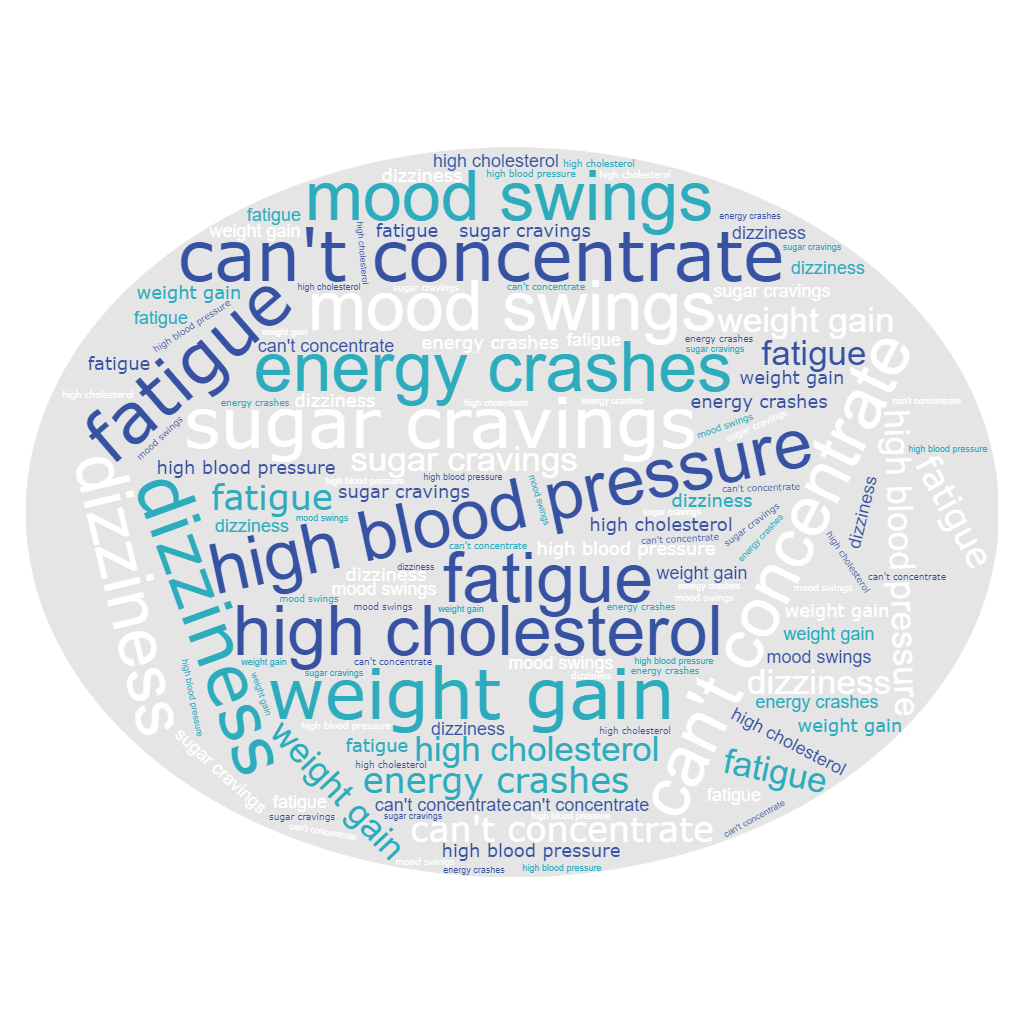
Blog
Part 5 Insulin Resistance in Menopause - Herbs and Supplements
Select herbs and supplements can amplify and accelerate the changes made to your diet to increase insulin senstivity. Suitabliity, treament protocals including osing should only be provided by a qualified professional, such as myself:)
Part 4 - Insulin Resistance in Menopause: Lifestyle Recommendations
Diet is crucial for improving insulin sensitivity in perimenopausal and menopausal women. Equally so, exercise, stress management, and quality sleep are important. This blog explains why these are so important and emphasise the different types of exercises that can directly improve insulin
Part 3 - Managing Insulin Resistance During Menopause: Dietary Recommendations
In this Blog, we explore these foods you are best to eat as well as those you should avoid when improving your insulin sensitivity. In many cases, food is what causes insulin resistance, so it is your most powerful tool to restore insulin sensitivity.
Part 2 - Insulin Resistance During Menopause - Recognizing Symptoms and Risks
Part 2 delves into recognizing symptoms and risks of insulin resistance during menopause. Symptoms include weight gain, fatigue, and cravings. Risks encompass type 2 diabetes, cardiovascular disease, and metabolic syndrome. Early identification is key for prevention and management.
Part 1- Insulin Resistance in Menopause - The Basics
This is part 1 of 4 of a blog series that explores the connection between menopause and insulin resistance. Hormonal shifts impact metabolism, leading to symptoms like weight gain and fatigue. Understanding these signs is crucial for early detection and management
Myths of Perimenopause
As women, we will spend just as much time, if not more, in perimenopause and menopause as we did in the prepuberty, puberty and fertile stages combined. Therefore, understanding what is happening, embracing the change and having a positive mindset is critical to navigating this major part of our life with ease and grace.
Thriving Through Perimenopause
Perimenopause is a vibrant and transformative phase that opens up a world of possibilities. By embracing the journey, celebrating personal growth, and prioritizing self-care, women can thrive through perimenopause with enthusiasm and zest. With a positive mindset, open communication, and support from healthcare professionals, this exciting phase can become a time of self-discovery, empowerment, and renewed vitality. Embrace the change and let perimenopause be the catalyst for a vibrant and fulfilling life ahead!
Common Perimenopausal Symptoms
There are at least, 11 common symptoms of perimenopause. As each person experiences perimenopause differently, there are likely more symptoms depending on what other issues may be at play. Ultimately, perimenopause is more than just hot flushes. Perimenopause can affect your mood, sleep, joints, brain, sleep, energy, sex drive and weight.
The 3 Stages of Perimenopause
During perimenopause, there is a gradual decrease in the production of estrogen and progesterone, two key hormones involved in the menstrual cycle and reproductive function. This hormonal decline is not linear and gives rise to varied and changing symptoms. There are many treatment options available to help you more smoothly transition to menopause. Understanding what stage of perimenopause you are in is key to knowing how best to support your physical and mental health.
Gut Health & Perimenopause
Gut health can have an impact on perimenopause, the transitional phase leading up to menopause. Key areas of impact include hormone metabolism, Inflammation and immune function, nutrient absorption and synthesis, and mood and mental health.
Estrobolome and Hormonal Health
The estrobolome refers to a group of microorganisms, particularly bacteria, involved in estrogen metabolism in the body. These bacteria interact with estrogen molecules and can either produce beneficial metabolites or harmful byproducts. The enzyme β-glucuronidase, produced by certain microbes, is thought to play a role in estrogen regulation. Gut inflammation and imbalances in the Firmicutes/Bacteriodetes ratio can also impact estrogen levels. To improve the estrobolome, consuming fermented foods, certain probiotics, prebiotic foods, and high-fibre and cruciferous vegetables is recommended.





